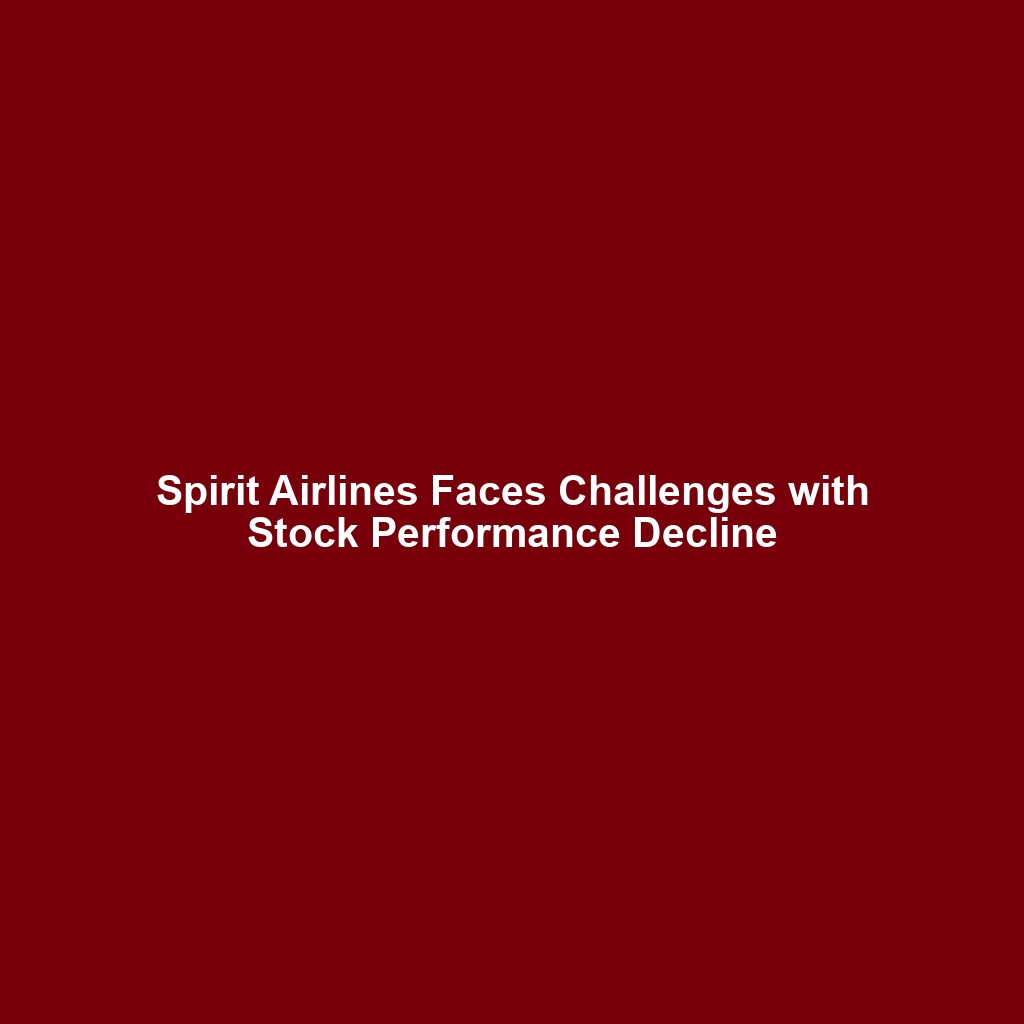Your cart is currently empty!
Tag: consumer demand

Françoise Bettencourt Meyers Promotes Sustainable Beauty
<>
Françoise Bettencourt Meyers Promotes Sustainable Beauty
Françoise Bettencourt Meyers Promotes Sustainable Beauty
Françoise Bettencourt Meyers, the heiress of L’Oréal and a prominent advocate for sustainable initiatives, has pledged $1 billion to global sustainable beauty efforts. This landmark commitment aims to revolutionize the beauty industry by integrating environmental responsibility into its core practices.
A Commitment to Sustainability
Bettencourt Meyers, who serves as the chairwoman of the family holding company which controls L’Oréal, announced this substantial investment during a press conference on October 15, 2023. Her goal is to support innovation in sustainable beauty technologies that align with the growing consumer demand for ethical and eco-friendly products.
“The future of beauty lies in prioritizing sustainability,” said Bettencourt Meyers. “This investment represents our commitment to lead the way toward a more responsible beauty industry, where sustainability is at the forefront of product development.”
Investment in Innovation
The $1 billion pledge will be allocated to a variety of initiatives, including support for startups focusing on sustainable ingredients, packaging solutions, and environmentally friendly manufacturing processes. Bettencourt Meyers has expressed particular interest in research that delivers innovative alternatives to traditional beauty formulations, which often rely on petrochemicals and unsustainable practices.
Experts in the beauty and sustainability fields have praised this initiative. Dr. Maria Johnson, a sustainability consultant for several cosmetic brands, remarked, “Bettencourt Meyers’ investment can catalyze significant changes within the industry, encouraging companies to pursue greener paths and setting a standard for responsible beauty.”
Consumer Demand for Sustainability
The move comes as the global beauty market increasingly shifts towards sustainability. According to a recent report by Grand View Research, the global green beauty market is expected to reach $22 billion by 2028, growing at a compound annual growth rate (CAGR) of 9.7% from 2021 to 2028. The rising awareness among consumers about the environmental impact of beauty products has prompted brands to rethink their strategies.
A 2023 study by Nielsen found that 73% of millennials are willing to pay more for sustainable products, demonstrating a clear market trend favoring ethical considerations. This shift in consumer behaviors has compelled brands to enhance their sustainability commitments, making Bettencourt Meyers’ investment highly relevant in today’s marketplace.
Global Initiatives Supported by the Fund
Bettencourt Meyers has indicated that the fund will not only focus on manufacturing but also address issues such as waste reduction, recycling programs, and sourcing of natural ingredients. The investment aims to support educational initiatives that promote sustainable practices in both consumers and industry professionals.
The initiative is set to collaborate with several renowned organizations and environmental groups to ensure the effectiveness of their programs. One of the key partners is the NGO, EcoBeauty, known for its efforts in promoting sustainable practices within the cosmetic industry.
Corporate Responsibility and Future Prospects
As the beauty industry faces scrutiny over its environmental footprint, Bettencourt Meyers’ actions reflect a broader trend of corporate responsibility that prioritizes sustainability as a key business strategy. L’Oréal has previously committed to reducing its carbon emissions and enhancing the recyclability of its packaging, signaling a shift in traditional practices that is becoming increasingly necessary in today’s market landscape.
Looking forward, Bettencourt Meyers’ leadership in fostering sustainable beauty practices could serve as a model for other companies in the industry. As stakeholders demand transparency and accountability, her commitment may very well inspire a new wave of initiatives aimed at addressing the pressing environmental concerns associated with cosmetic products.
Conclusion
Françoise Bettencourt Meyers’ $1 billion pledge marks a significant moment for the beauty industry, highlighting a pressing need for sustainability in product development and manufacturing processes. As consumer demand for eco-friendly products grows, this initiative not only aligns with market trends but also positions L’Oréal as a leader in sustainable beauty innovation.
Through this investment, Bettencourt Meyers aims to create a new paradigm that prioritizes environmental responsibility, encouraging a shift within the industry toward sustainable practices. This commitment may pave the way for a brighter and more sustainable future in the beauty sector.

Spirit Airlines Faces Challenges with Stock Performance Decline
Spirit Airlines Faces Challenges with Stock Performance Decline
Spirit Airlines Faces Challenges with Stock Performance Decline
Spirit Airlines, known for its low-cost ticket offerings, is currently grappling with a downturn in stock performance that raises questions about its future. As of October 2023, the company’s stock has declined over 20% in the past year, reflecting broader challenges facing the airline industry and specific operational hurdles within the company itself. This article explores the multifaceted factors contributing to Spirit’s stock performance and examines what this could mean for the airline going forward.
Market Overview and Recent Performance
Spirit Airlines’ stock performance has mirrored the volatility seen throughout the air travel sector, which has faced significant headwinds since the pandemic. According to market analysts, ongoing challenges such as rising fuel costs, inflationary pressures, and fluctuating demand have all played a role in the decline.
For instance, data from financial analysis firms point to a sector-wide increase in operational costs. Spirit, primarily a low-cost carrier, relies heavily on maintaining lower fares to attract price-sensitive travelers. However, increases in fuel prices, which currently show no signs of stabilizing, have prompted analysts to reevaluate profitability across the airline sector.
Impact of Rising Operational Costs
Fuel costs represent the most significant expense for airlines, and with crude oil prices hovering around $80 per barrel, Spirit Airlines is feeling the pinch. Rising operational costs not only erode profit margins but also compel the airline to adjust its pricing strategy, potentially alienating its core customer base.
“It’s crucial for airlines like Spirit to strike a balance between maintaining competitive fares while also covering their rising costs. Failure to do so could lead to long-term viability issues,” commented aviation analyst David Lutz.
Challenges with Operational Efficiency
Aside from fluctuating fuel prices, Spirit Airlines has faced specific operational hurdles that have raised concerns about its future. The airline’s performance has been marred by a series of flight cancellations and staffing shortages, a dilemma that first became evident during the summer travel surge.
Flight cancellations have reached significant levels, with reports indicating that the airline canceled nearly 7% of its flights in Q3 of 2023, resulting in a loss of consumer confidence. Moreover, staffing shortages have been reported as pilots and crew members have left for better-paying positions within the industry.
Consumer Demand and Travel Trends
On the demand front, Spirit Airlines has also encountered headwinds. While air travel demand has rebounded following the pandemic, economic indicators suggest that consumer spending is beginning to decline. This could lead to a downturn in discretionary travel spending, which impacts demand for low-cost carriers that thrive on affordability.
“As inflation continues to rise, consumers are expected to be more cautious with their spending habits. This shift could adversely affect airlines that cater to budget travelers,” noted economic strategist Sarah Hanley.
Industry Competition and Market Positioning
The competitive landscape has also intensified as airlines rapidly adapt to changing consumer preferences and try to regain lost market share. Major carriers such as Southwest and American Airlines are improving their service offerings, making it imperative for Spirit Airlines to not only compete on price but also on service quality.
Spirit’s unique positioning as an ultra-low-cost carrier gives it a competitive advantage, but it must navigate the challenges posed by larger airlines that are enhancing their offerings. “The ultra-low-cost model is sustainable, but it requires constant adaptation to market changes. Spirit needs to be cautious about how it positions itself in a growing competitive environment,” advised airline consultant James Tarlow.
Future Outlook: What Lies Ahead?
Looking ahead, the future of Spirit Airlines hinges on its ability to manage costs effectively while maintaining passenger satisfaction. The organization has undertaken various strategic initiatives, including expanding its route network and investing in marketing efforts to attract new customers. However, these steps must offset the operational challenges it currently faces.
Furthermore, Spirit Airlines is also exploring options for fleet modernization, which could improve fuel efficiency and operational reliability, although such improvements require substantial financial investment during a time of economic uncertainty.
Conclusion
Spirit Airlines is undoubtedly facing a challenging landscape, characterized by rising operational costs, intense competition, and shifts in consumer demand. With its stock performance reflecting these concerns, stakeholders are eager to observe how the airline navigates its current difficulties. Moving forward, Spirit’s strategies will be crucial in determining not only its stock recovery but also its reputation and viability within the broader airline industry.
As the airline continues to adapt to the changing economic environment, analysts will be closely monitoring its financial health and operational adjustments for signs of recovery and growth potential.

Best Buy Co., Inc. (BBY)
Summary
Best Buy Co., Inc. (BBY) is a leading retailer of consumer electronics and appliances in North America. The company operates a network of stores, complemented by a robust online presence, catering to customers with a wide range of products including laptops, smart home devices, televisions, and appliances. Best Buy’s commitment to customer service and technology expertise positions it favorably in a competitive retail landscape.
News
Recently, Best Buy has been making headlines with its strategic initiatives to enhance its e-commerce capabilities, adapting to the evolving retail environment. The company announced a partnership with several leading technology brands to offer customers exclusive products and services. Furthermore, Best Buy continues to focus on sustainability practices within its operations, including reducing its carbon footprint and improving waste management processes.
Research
Best Buy has been recognized for its effective operational strategies and strong market presence. Analysts highlight the company’s ability to navigate challenges posed by economic fluctuations and changing consumer preferences. With a growing demand for consumer electronics and home appliances, BBY is well-positioned to capture market share through innovative marketing strategies and enhanced customer experience.
Charts
Charts reflecting Best Buy€„¢s stock performance reveal a generally positive trend over the past year. Investors have shown confidence in the company’s strategic direction, with technical indicators suggesting a stable growth trajectory. It is advisable for potential investors to analyze these charts, focusing on support and resistance levels to better gauge market entry points.
Community
Best Buy has established itself as a community-oriented company, actively engaging in various philanthropic endeavors. The Best Buy Foundation supports education initiatives aimed at improving technology access for underprivileged youth. Customers can also participate in recycling programs for electronics, contributing to sustainable practices while benefiting the local community.
Statistics
- Market Cap: 30 billion,
- P/E Ratio: 14.75,
- Dividend Yield: 2.85%,
- 52-Week Range: 60.00 – 108.90,
- Average Volume: 3 million shares
Financials
- Revenue: 50 billion,
- Net Income: 1.5 billion,
- Cash Flow: 2 billion
Historical Data
Historical stock price data for Best Buy indicates a consistent trend in growth, correlating with positive quarterly earnings reports and successful product launches. A historical analysis shows a significant rise in share price during holiday sales periods, driven by increased consumer spending on electronics and appliances.
Profile
Founded in 1966, Best Buy has grown from a small audio specialty store to one of the largest retailers in consumer electronics. With over a thousand locations across the United States, Best Buy provides customers with an extensive range of products, expert advice, and reliable customer service. The company prioritizes innovation and the integration of technology into retail experiences.
Analysis
Market analysts exhibit optimism towards Best Buy’s future, citing the company€„¢s strong brand equity and effective management strategies. Investors are closely monitoring the ongoing trends in the retail industry, particularly the shift towards online shopping. Best Buy’s adaptability in embracing digital transformation will be crucial in maintaining its competitive edge.
Options
The options market for Best Buy Co., Inc. indicates a variety of trading strategies, reflecting investor sentiment towards upcoming earnings releases and market conditions. Traders should consider volatility and market trends when exploring options as part of their investment strategy for BBY stocks.
Holders
Best Buy’s shareholder base is diversified, with both institutional and retail investors holding significant portions of the company. Recent filings indicate an interest in BBY from major investment firms, reflecting confidence in the company€„¢s growth and profitability.
Sustainability
Best Buy is committed to corporate sustainability, implementing initiatives focused on environmental stewardship. The company has set ambitious goals for reducing greenhouse gas emissions and promoting energy-efficient products. In addition, Best Buy actively participates in recycling programs and has made efforts to enhance the lifecycle of its products.
Key Executives
- CEO: Corie Barry,
- CFO: Matt Bilunas,
- COO: Mike Mohan
Top Institutional Holders
- Vanguard Group,
- BlackRock,
- Fidelity
For more detailed insights on Best Buy Co., Inc., visit UpCubeMoney.com.

